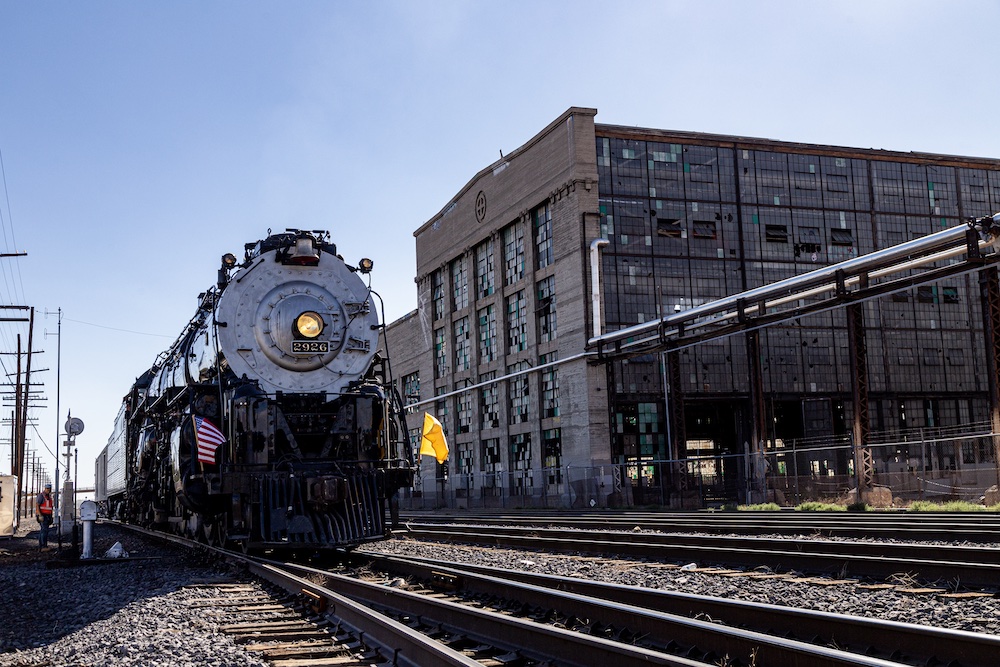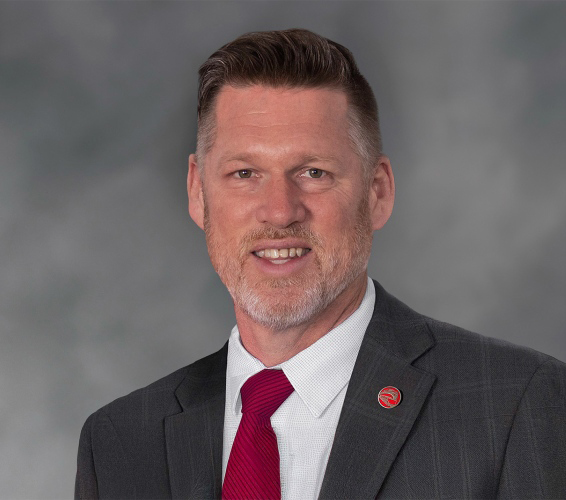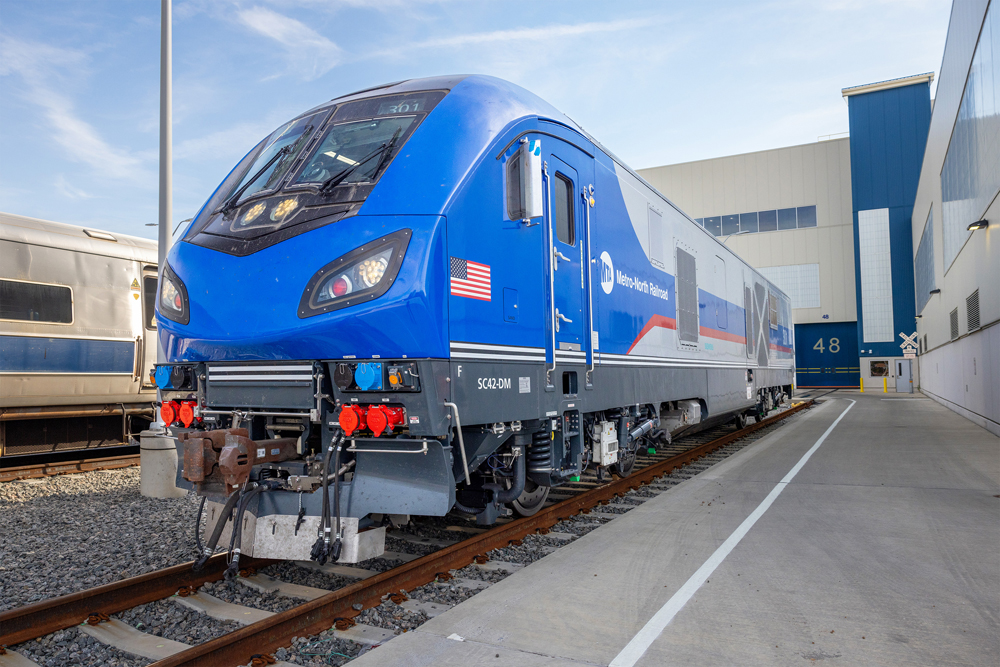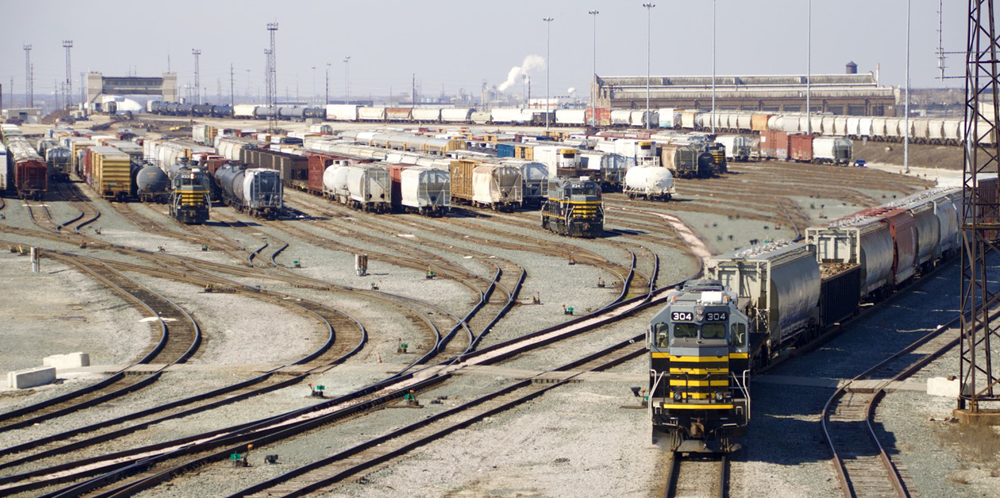A typical carload customer — be it plastics, chemicals, paper, or lumber — might send only 60 percent of its business via rail, while the rest goes by truck, Foote says.
“The reason they ship it in a truck is because they don’t trust the railroad to get it there on time,” Foote told an investor conference on Wednesday.
Shippers would rather send more business the railroad’s way, Foote says, because it’s 10 to 15 percent less expensive than truck.
Before adopting Precision Scheduled Railroading, carload transit time might vary between five and nine days and a car might arrive as scheduled only 50 percent of the time, Foote says. No shipper in their right mind would send all their freight via a railroad with that kind of performance, he says.
The reason to improve efficiency and reliability under Precision Scheduled Railroading, Foote says, is to get a higher share of the billions of dollars of revenue from freight that’s moving via highway but should be in freight cars.
The way to get there, Foote says, is to improve carload trip-plan compliance, which now stands in the high 60-percent range, up from 50 percent when CSX rolled out trip plans last year.
“We need to get that to 90 percent or so,” Foote says. “So there’s a tremendous amount of potential there for improvement.”
CSX is already regaining some merchandise traffic lost to truck over the years, Foote says, adding that this is not business the railroad lost from widespread service disruptions in 2017.
Service suffered in the second half of 2017 as former CEO E. Hunter Harrison made rapid operational changes that gummed up the railroad and drew shipper complaints and the scrutiny of federal regulators.
CSX continues to work on reducing the number of times a car is handled en route, which shaves costs and improves service reliability, Foote says.
“It’s an evolution. As I said, as we improve efficiency, what we’re doing is improving the quality of the service product that we have for our customers. And that takes time. It takes time to get traction and it takes time to improve,” Foote says.
He spoke at the J.P. Morgan Aviation, Transportation & Industrials Conference.















Reliable service???, doesn’t happen with psr
Is Mr Foote bi-polar or simply disingenuous? For months now, we’ve been hearing the praises of PSR while reading about the misfortunes of shippers victimized by the same. It seems that, by his statements, Mr. Foote knowes the difference. If so, why doesn’t he act on it appropriately?
Didn’t CSX just a short while back cut back on intermodal service lanes and put more traffic back on the highways. They talk out of both sides of there mouth.
Meanwhile, truckers take advantage of that most socialistic of civic amenities, the public road: owned in common, free access to all for a nominal fee (a license plate), maintained at public expense almost regardless of cost, . . . .
“Until the railroad unload their infrastructure on the government”. ?? We do not live in a solialist country!! The railroads physical plant should never be ‘Govmt” controlled.
See barn, see horse? Oh, where’s the horse?
Harrison destroyed customer service wherever he worked. CSX is a disaster.
Achieving 90% reliability requires extra locomotives, crews and track and terminal capacity to make the system resilient to disruption. Under PSR, it will not happen.
Trucks have the ability to increase “service” – at will – without (much) capital cost. The railroads don’t. So, if CSX spends capital to increase “service” the truckers can easily match it.
Until the railroad unload their infrastructure on the government trains will always be bit players. Too bad they didn’t do it in the 60’s.
Actually, he’s wrong in one way…most American businesses are run for the shareholders, but not completely, because if you are running your company solely to reduce costs, then that fluctuation in transit times can easily be factored into your business schedule in order to reap the cost savings of shipping by rail. Unfortunately most executives today are to ‘by the book’, they run a business how they were taught in school to run a business, not by using common sense(which is in short supply in the U.S.).
Yeah, CSX will bring back the traffic CSX chased away… What shipper with a choice wants to be a yo-yo in CSX’s incompetence ?????